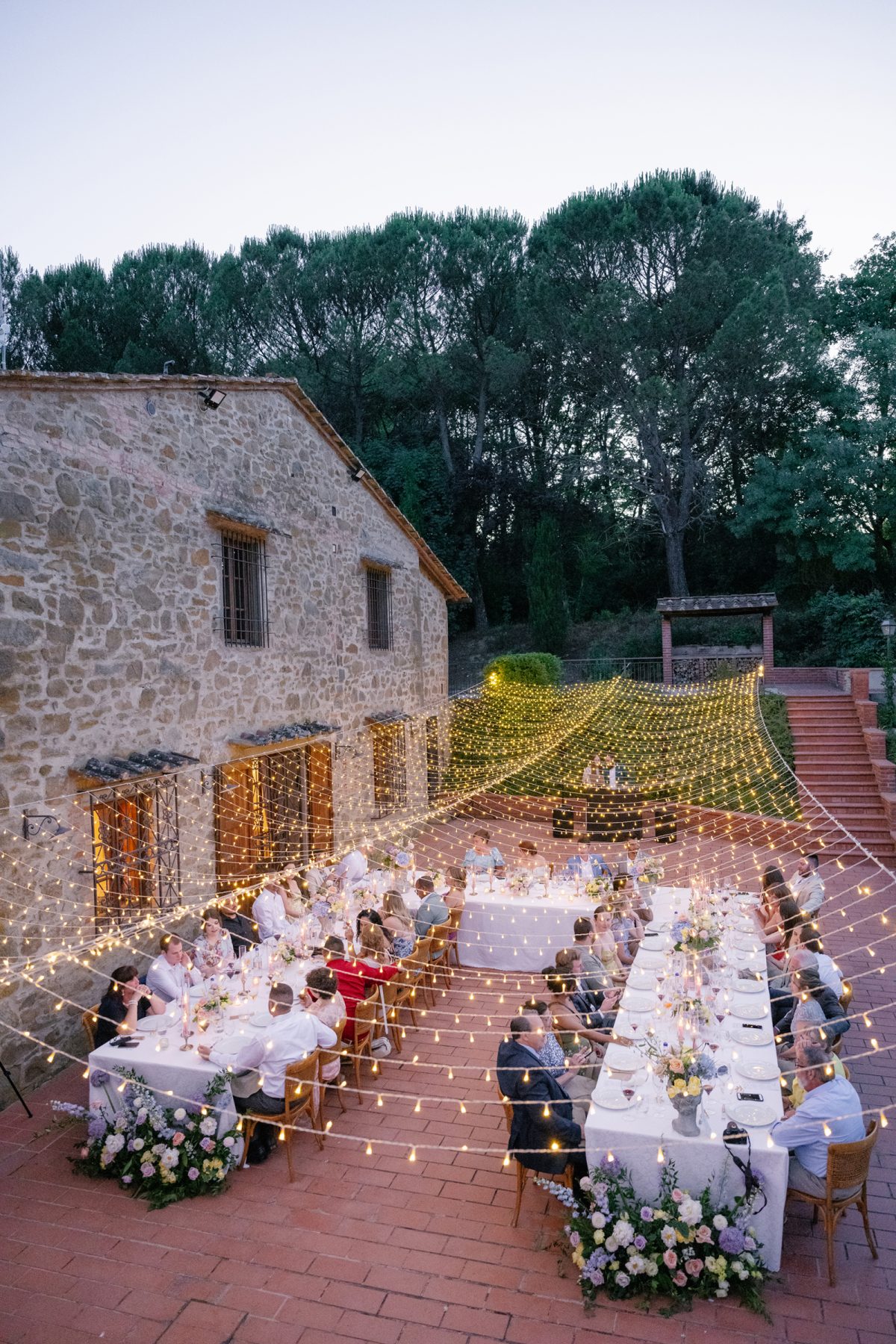Choosing a life partner is a really big decision. Having a wedding, on the other hand, is a hundred smaller ones. And for many couples, the primary decision is ‘where?’ Which brings up the question of a destination wedding—how do you decide?
“The first question is, why are you thinking of a particular destination?” says planner Mary Andrews, principal of Mary Elizabeth Events (just back from her own wedding in Tuscany). “Does that place mean something special to the two of you? Or are you seeking an experience you’ll share with you guests? Or do you want a getaway?”
Part of that decision is considering who you want to share in your special day. “A destination wedding may mean lots of people you have invited won’t be able to attend,” Andrews points out. You should consider your guests’ ability to travel (for example, elderly family members or pregnant friends), as well as their financial situation.
One way to include a wider group in your big day, says Andrews, is to hold wedding-related events (such as the bridal shower, or a pre- or post-wedding reception) locally. Or you could borrow a pandemic tactic: livestreaming or video-recording the ceremony and/or part of the reception, like the speeches and the father-daughter dance.
If you’ve decided on a destination wedding, prepare for more decisions. Do you want an all-inclusive resort that provides transportation to and from the airport, accommodations for your guests, a space for the ceremony, and facilities for the rehearsal dinner, post-wedding reception/dinner, and the next-day breakfast or brunch? That kind of convenience is attractive, but usually more costly for both you and your guests.
A more casual, less-structured approach may enable your guests to save money (on hotel rooms, for instance). But the destination you have chosen is key—an all-inclusive resort may be more sensible if you are gathering in the Costa Rican rainforest, while if you’re getting married inside the Eiffel Tower, guests can likely find their own accommodations. Another way to hold costs down is to plan for the off-season, or hold your events midweek.
As with any wedding, “the guest count is one big factor in your costs,” Andrews says. Since guests are paying for airfare and accommodations, they expect you to provide the event meals. Here, your style could help you keep to your budget—having a reception rather than a sit-down dinner, or providing buffet breakfast and a trip to a local winery instead of a formal brunch. And don’t forget to factor in the local economy, everything from hotel rooms to meals, entertainment, and food taxes (for example, VAT in Italy is 22 percent).
Then there are the practical details to consider. If a health emergency arises, are there medical facilities nearby? Do you want a friend to officiate at your wedding? If so, check out the local regulations first thing; in many places, Andrews points out, if you aren’t getting married in a church, you have to marry in a registry office first. And be realistic—is it safe for your guests to travel there?
Now you’re really down to nuts and bolts: Will your guests need a visa or vaccinations? Do they all have current passports or REAL ID cards? What about dietary restrictions (not all destinations have kosher or halal caterers)? How will the bridal party get their dresses there? (As for gifts, Andrews suggest that for a destination wedding, your invitation should make clear gifts are optional, or should be sent to the couple’s address rather than brought to the wedding.)
By this point, it’s clear that one thing you will need is a wedding or event planner who has experience in your destination. This can be someone local (logistically easier, and more likely to understand expectations) or someone who is actually on site at the destination, although that person may be harder to reach given time zones. Another option, Andrews points out; The venue you choose may have relationships with local event consultants.
“People have big dreams [about their wedding day,]” she says. “The challenge is managing those dreams versus reality.” But it can be done. “You need a good understanding of what you want and what’s needed—and a good Plan B,” says Andrews.
